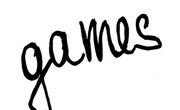In many high school English classes, students diligently work to learn the complex vocabulary necessary for college or to earn a high score on pivotal SAT or ACT tests. While many teachers stop playing vocabulary games with their students in elementary or middle school, the practice of playing vocabulary games can be just as effective when used with higher level students. These students, like their younger counterparts, enjoy the competitive nature and engaging format of a game.
Overview
In many high school English classes, students diligently work to learn the complex vocabulary necessary for college or to earn a high score on pivotal SAT or ACT tests. While many teachers stop playing vocabulary games with their students in elementary or middle school, the practice of playing vocabulary games can be just as effective when used with higher level students. These students, like their younger counterparts, enjoy the competitive nature and engaging format of a game.
Vocabulary Relay
Get your high school students out of their seat with this enjoyable game. Prepare by typing up vocabulary word definitions. Print these out on an overhead, or save the document so that you can project it with an LCD Projector. Type up each vocabulary word in large font. Leave spaces between each letter, allowing you to cut the letters easily. Create two copies of these enlarged words. Also, procure two computer paper boxes. Label one “team one” and the other “team two.”
When students arrive, divide them into two teams. Give each team one of the sets of letters and a computer paper box. Instruct them to cut the paper, separating all the letters. Then ask them to place the cut out letters in their box. Place both boxes at the front of the room. Have students line up in single file roughly four feet back from their box. Give the first person in each line a role of masking tape.
Tell students that you are going to project a definition onto the screen using an overhead or LCD projector. Tell the students that once they see the definition, they need to start creating the appropriate word using the letters in their box. One at a time, team members will go up to the box, find a letter and place it on the wall in front of their box. They can grab the letters in whatever order they want, but by the end they must have the complete, correctly spelled word.
Award a point to the team that creates the appropriate word first, and continue play until you have presented all of the definitions.
Vocabulary Bingo
As you learn vocabulary words throughout the year, create an ongoing list, and use this list in a continuous vocabulary game. Post a continually growing list of vocabulary terms on your classroom wall. Tell students that, whenever they are reading aloud as a class, and they come across one of the words, they need to announce that they have found a word. To announce the finding of the word, the students need to yell out Bingo. Keep a stash of candy or inexpensive prizes to reward the bingo students.
Vocabulary Hunt
Another way to continue vocabulary building throughout the year is to engage students in a continuous vocabulary word hunt. Create a list of students on a bulletin board or poster. Tell students that they can earn points by finding examples featuring vocabulary words that they have learned in class in print media. Tell students that, when they find an example, they can bring it in to class, and a point will be placed next to their name. Display the examples around the poster or on the bulletin board. At the end of the year, reward the student with the most points with a special prize to recognize his careful hunting.
Related Articles
References
Writer Bio
Erin Schreiner is a freelance writer and teacher who holds a bachelor's degree from Bowling Green State University. She has been actively freelancing since 2008. Schreiner previously worked for a London-based freelance firm. Her work appears on eHow, Trails.com and RedEnvelope. She currently teaches writing to middle school students in Ohio and works on her writing craft regularly.











